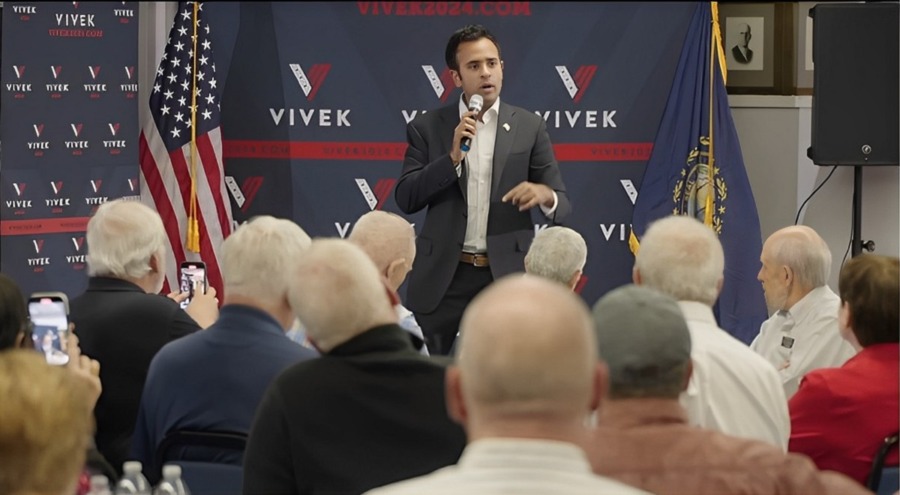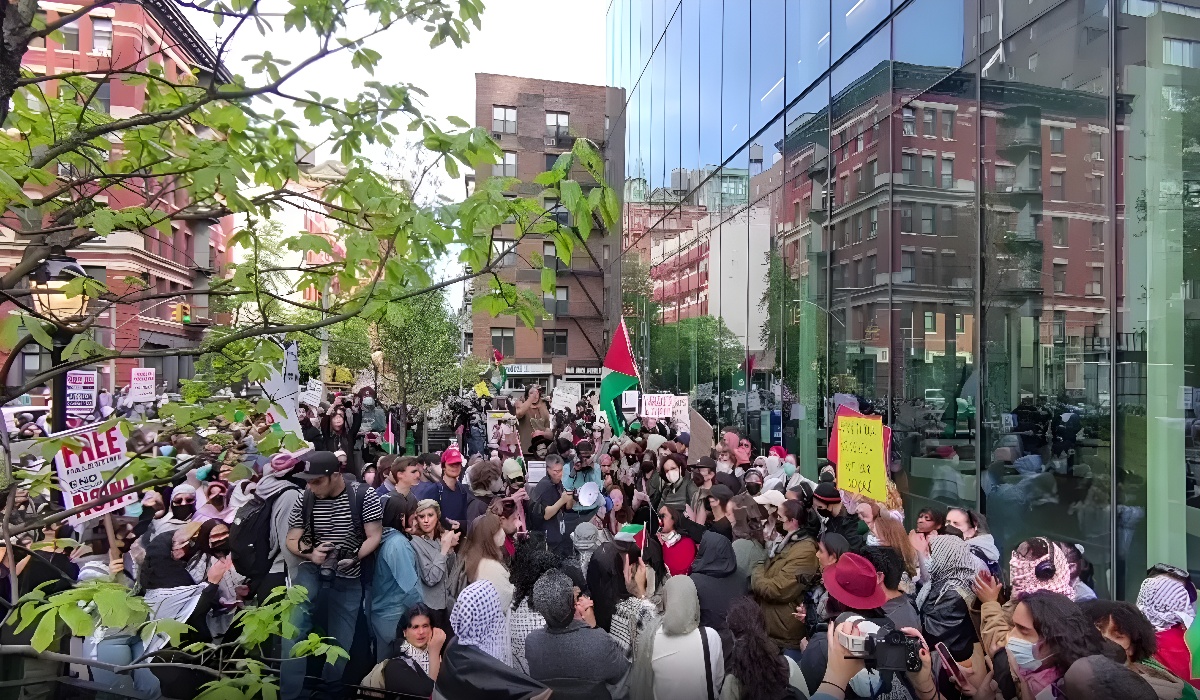Running under the banner of “Truth,” Vivek Ramaswamy’s campaign raises a critical question: whose truth does he represent? As he propagates a discourse laden with incendiary and polarizing language, the veracity of his claims comes into question. In an era when the susceptibility of right-wing voters’ beliefs is notable, the peril of this candidate’s rhetoric cannot be overstated. The potential harm his words might inflict underscores the urgent need to recognize the alarming threat he poses.
Amid a highly contested GOP election season, the 2024 United States presidential race has taken an unsettling turn with the emergence of controversial comments by candidate Vivek Ramaswamy. His remarks surrounding white supremacy and the Ku Klux Klan (KKK) have ignited a firestorm of criticism and concern, reminiscent of a turbulent era in American history. Over the past few months, Ramaswamy’s rhetoric has sparked alarm among critics, who argue that his words are dangerous and eerily reminiscent of the divisive approach that marked the lead-up to the 2016 election.
The latest Ramaswamy controversy centers around his inflammatory statement during a campaign rally in Iowa, where he referred to Rep. Ayanna Pressley, D-Mass., a Black congresswoman, as a part of the “modern KKK.” This remark stemmed from Pressley’s past comments in 2019, addressing the need for authentic representation within the Democratic Party. She said that the party didn’t require “brown faces that don’t want to be a brown voice” or “Black faces that don’t want to be a Black voice,” urging individuals to embrace and share their unique experiences. Despite being given numerous opportunities to retract his statement during a CNN interview with host Dana Bash, Ramaswamy doubled down, reinforcing his controversial perspective with increasingly objectionable comments.
The parallels between Ramaswamy’s rhetoric and the discourse surrounding former President Donald Trump’s campaign in 2016 are hard to ignore. Mainstream media outlets have been accused of amplifying Ramaswamy’s controversial remarks, much like they did with Trump’s statements during his campaign. This amplification has not only given him significant airtime but has also led to heightened ratings for media networks. Critics assert that this sensationalism cycle plays a significant role in fanning the flames of division and polarization within the country.
In the aftermath of Trump’s election, many media outlets and prominent figures acknowledged their role in amplifying his rhetoric, subsequently contributing to increased hostility, division, and distrust. Promises were made to exercise greater responsibility in the future. However, the situation seems eerily familiar as the 2024 election cycle unfolds. Once again, media networks are under scrutiny for allowing Ramaswamy’s divisive rhetoric to pervade the airwaves despite the lessons learned from the past.
Ramaswamy’s background as a self-made billionaire and intellectual only adds to the situation’s complexity. While his accomplishments speak to his intelligence and financial success, his controversial statements have raised concerns about his ability to unite an increasingly divided nation. Critics argue that his words could harm a society further, already grappling with issues of racial tension, political polarization, and distrust in elected officials and institutions.
As the election draws closer, the country finds itself at a crossroads, grappling with whether history is destined to repeat itself. The parallels between the rise of Trump and the current discourse surrounding Ramaswamy cannot be overlooked. The fear is that, if elected, Ramaswamy’s rhetoric could sow the seeds of division and animosity within the fabric of American society, leading to consequences just as dire as those experienced during Trump’s tenure.
It is clear that the media’s role in shaping public perception and discourse remains a crucial factor in the unfolding narrative of the 2024 election. Critics implore media networks to take a more responsible approach in their coverage, ensuring that they do not inadvertently amplify divisive rhetoric that could threaten the very fabric of American unity. The call to “call a spade a spade” emphasizes the importance of holding both media outlets and political candidates accountable for their contributions to the national discourse.
As the election season progresses, the nation watches with bated breath, hoping that the lessons of the past have not been forgotten. The fate of American unity hangs in the balance as Ramaswamy’s controversial comments continue to reverberate across the political landscape. The responsibility to navigate these treacherous waters falls not only on the candidates themselves but also on the media outlets that shape the public’s perception of the candidates and their platforms.









